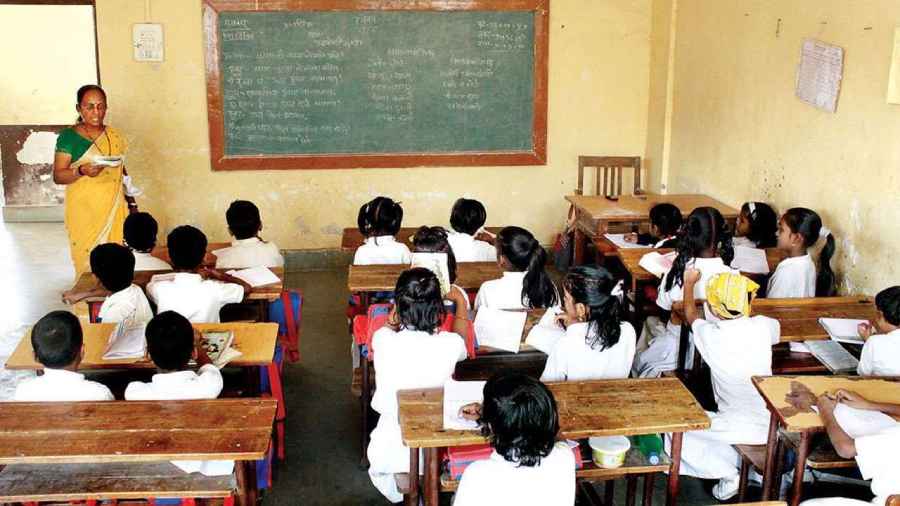Where the mind is without fear and the head is held high; that is the school-life that Rabindranath Tagore had envisioned for students. Perhaps this had something to do with Tagore’s own — dismal — experience of the school as a box where children were boarded and their likes and dislikes, their spirits, suctioned out by strict, unimaginative teachers and sterile lessons. Indeed, formative schooling has been far more than just a pedagogical pursuit in kinder, modern times. Quite a bit of play along with work, it is believed, helps in honing young minds into well-rounded personas capable of dealing with stress, competition and — most significantly — failure and disappointment that are integral to life. But even beyond that, the school as an institution and schooling as an experience are meant to play crucial roles in exposing children to the joys of companionship, collaborations, even mischief and a bit of juvenile romance. These have been integral in summing up the experience of early learning for decades.
The Indian schooling system has always had its share of problems. But the disruptions caused by the pandemic seem to have precipitated a unique crisis. Parents, who have become an active presence in the ‘virtual’ classrooms since schooling moved online, seem to be spoiling the easy camaraderie that bound the school to its wards and their families by adopting a rather utilitarian approach. It has been reported that parents across several schools in the city are showing scant respect for schools, or finding fault with teachers, on the assumption that such behaviour — interference, in other words — is justified by their ability to pay the school fee. This patronising attitude is dangerous and is likely to afflict their children as well. But parents are not the only ones to be blamed for the regression. Education is big business in a country where the State has failed to democratise quality learning. Schools of indifferent standards have thus mushroomed and, in their bid to increase enrolment, advertise their services in a manner that makes them vulnerable to the demand-supply syndrome. This commodification, in fact, has a wider currency. Even the National Education Policy, it is alleged, endorses policies that are reducing schooling to a mere means to an end.
As important as studies are, schools are also the first sites of socialisation: the values they impart influence adult lives in the future. Picnics, excursions, fetes and so on — parents are apparently scrutinising whether these fall within curricular activities — are the building blocks of this socialisation. Parents must understand that a mercantile mentality is inadequate when it comes to assessing the gift of schooling. Some experiences — the wonder years in school are among these — cannot be bought with wealth.











